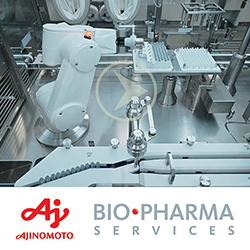Technology Advancements in Protein Therapeutics Spurring Market Growth to $248.7 Billion
Protein drugs have gained importance for their therapeutic applications, and the numbers of products have increased in recent years. BCC Research reveals in its new report that novel technologies, such as recombinant DNA (recombinant deoxyribonucleic acid or rDNA) technology and genetic engineering, have lifted the market for protein drugs to new heights.
Proteins, an important class of regulatory molecules, are the building blocks of the body. Protein therapeutics has become an important segment of the healthcare industry. Owing to the high specificity and low immunogenicity, protein therapeutics is widely used to treat various life-threatening diseases such as cancer, diabetes and multiple sclerosis.
The global market for protein drugs, which reached $174.7 billion in 2015, should reach nearly $248.7 billion by 2020 at a 5-year compound annual growth rate (CAGR) of 7.3% through 2020. By region, the US is the largest market, reaching nearly $92 billion in 2015. The fastest-growing region with a projected 5-year CAGR of 10.9%, the US should total $154.1 billion by 2020. Europe, which reached $42.2 billion in 2015, should total $48.1 billion by 2020, reflecting a 5-year CAGR of 2.6%.
In terms of revenue, monoclonal antibodies are the largest segment. The use of monoclonal antibodies has grown because of the increased incidence of various chronic diseases. Insulin analogs, which are more efficient than the recombinant insulin, should contribute growth to the market. However, the market faces competition from the entry of follow-on biologics.
Vaccines are another growth segment in the biopharmaceutical industry. Improving economic conditions, increasing public awareness toward vaccination and the global effort of governments to eradicate viral and bacterial infections are key drivers. Improved manufacturing technologies have fueled the vaccines market, as well. In addition, rapid advances in medical technologies, improved diagnosis of diseases, and the expansion of healthcare in emerging markets should positively impact the market.
The increase in the incidence of chronic diseases, such as cancer, various hormone and enzymatic disorders, asthma, and autoimmune diseases has added growth to the market. Outstanding improvements in technologies, such as mass spectrometry, advances in molecular genetics, and progress in production technologies, are key drivers
“With the advent of genetic engineering and recombinant DNA technology, it is now possible to produce a wide variety of human proteins,” says BCC Research analyst Shalini S. Dewan. “Recombinant DNA technology has created an ease in manufacturing of protein therapeutics, and are replacing the traditional natural methods of extraction. This rising demand for high-quality recombinant therapeutics is motivating the research and development of mammalian-cell-based manufacturing systems for improved production yields.”
Global Markets and Manufacturing Technologies for Protein Drugs (BIO021E) analyzes the industry by each major class of protein: therapeutic monoclonal antibodies, cytokines, peptide hormones, vaccines, and blood products. Additionally, the report discusses new technologies, growing competition, and changing customer needs. Analyses of global market drivers and trends, with data from 2014, estimates for 2015, and projections of CAGRs through 2020 also are provided.
For more information, contact BCC Research LLC at 49 Walnut Park, Building 2, Wellesley, MA 02481, Telephone: 866-285-7215; Email: editor@bccresearch.com.
Total Page Views: 891

















